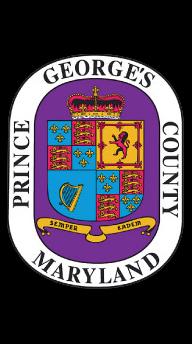By Barry Rascovar
For MarylandReporter.com
 Back when I was a naïve and newbie political reporter covering the Maryland General Assembly in the early 1970s, I was baffled when legislators joked in lounges and hallways about “Honest Prince George.”
Back when I was a naïve and newbie political reporter covering the Maryland General Assembly in the early 1970s, I was baffled when legislators joked in lounges and hallways about “Honest Prince George.”
I found out soon enough it was a jovial but derogatory reference to the questionable “pay for play” politics practiced by some leaders of Prince George’s County.
Rapid land development and the county’s population explosion made the Washington suburb prime ground for under-the-table payoffs to elected officials who got builders construction permits and re-zoning approval.
Straight-arrow Prince George’s senators and delegates would join in the verbal State House sparring about their “honest” county, but they knew better than most what was going on.
Now “Honest Prince George” has surfaced again.
Blown cover
Arrests by federal prosecutors so far have nabbed a liquor board commissioner, a longtime former councilman and a yet-to-be-named state legislator involved in a long-running bribery and payoff scheme.
Will Campos, a 10-year councilman and ex-delegate resigned his state post in 2015 after only nine months in office, realizing his cover had been blown and the feds were hot on his trail.
He pled guilty earlier this month to taking nearly $50,000 in payoffs to direct $325,000 in county funds to business owners over a seven-year period. On one occasion, he was handed a white envelope stuffed with $3,000 in the bathroom of a College Park restaurant.
Another ex-delegate, Michael Vaughn, turned in his resignation letter last Wednesday due to “ongoing health challenges” – like avoiding a long prison sentence (clearly not good for your health).
Prosecutors say one of their targets is a delegate who voted in committee to extend Sunday liquor sales in Prince George’s as part of a bribery scheme. Vaughn was the only county delegate on that committee who voted in 2015 for that Sunday liquor-sales bill.
More shoes will drop as federal investors continue the latest Prince George’s County corruption probe. It’s certainly been a long-running story.
Baggett first to fall
The first bigshot in Prince George’s to fall was Jesse Baggett, the chairman of the then-all-powerful Board of County Commissioners during the county’s massive land-development boom in the late 1960s and early 1970s. Baggett went to prison in 1971 for taking a $3,500 bribe from a builder in exchange for help on re-zoning.
The county became ground zero for the headline-grabbing Marvin Mandel racetrack scandal in which the secret sale of a county half-mile track in Upper Marlboro formed the case against Governor Mandel and his co-defendants, including a prominent county lawyer, Ernest N. Cory, Jr., who lied repeatedly to the state racing commission about the Mandel group’s ownership of the track.
This unsavory reputation by county leaders helped unseat many of them in the 1970s by a reform group led by Steny Hoyer, now the county’s longtime congressman, and an influential lawyer-politician, Peter F. O’Malley.
Yet the smell of money proved irresistible for a few. A longtime state senator, Tommie Broadwater, went to prison for food stamp fraud. A delegate, Leonard Blondes, was found complicit in a bribery scheme.
A one-term delegate and county councilman, Tony Cicoria, stole $65,000 in campaign contributions, lied on his tax returns and then while on the council went AWOL for 13 months to avoid the long arm of the law. Cicoria eventually was nabbed in Florida where his return to Maryland was delayed by local charges of using a fraudulent drivers license.
Good old “Honest Prince George.”
Johnson’s shame
In the 21st century, the most flagrant offender has been former County Executive Jack Johnson, who used his office to extort $1.6 million from developers during his eight years in office.
When Johnson and his wife, herself a county councilwoman, were arrested by the feds, Johnson was shouting at his wife to stuff illicit cash into her bra and panties and to flush the rest of the dough down the toilet. (Officers recovered $79,600 from Leslie Johnson’s undergarments and another $100,000 from the water closet.)
Then there was the sad case of current Sen. Ulysses Currie, who was accused of using his office and committee chairmanship to twist arms for his client while getting a kickback worth hundreds of thousands of dollars.
Currie beat the rap, but not without humiliating himself with a defense that claimed Currie was too dumb to be dishonest.
And of course, there was Tiffany Alston, who avoided criminal punishment by resigning her elected office in 2012 as a delegate because she had stolen from her campaign fund to pay herself and cover her wedding expenses.
Constant surveillance
Sadly, a few politicians in Prince George’s continue to regard their elective offices as ways to enrich themselves through quid pro quos.
Other jurisdictions, such as Baltimore County and Baltimore City, have similar shameful histories – witness the indictment of Gary Brown, Jr. on the eve of his appointment as a state delegate for laundering $18,000 in campaign contributions for his boss, Mayor Catherine Pugh, through his relatives.
At least Prince George’s voters had the good sense to elect a reformer, Rushern Baker, as county executive to help clean up the mess left behind by Jack Johnson.
Still, the ballooning liquor board scandal points to a continuing problem in the county that will need constant surveillance and scrutiny to scrub Prince George’s County of its “pay to play” reputation.
Barry Rascovar’s blog is www.politicalmaryland.com. He can be reached at [email protected]



Recent Comments